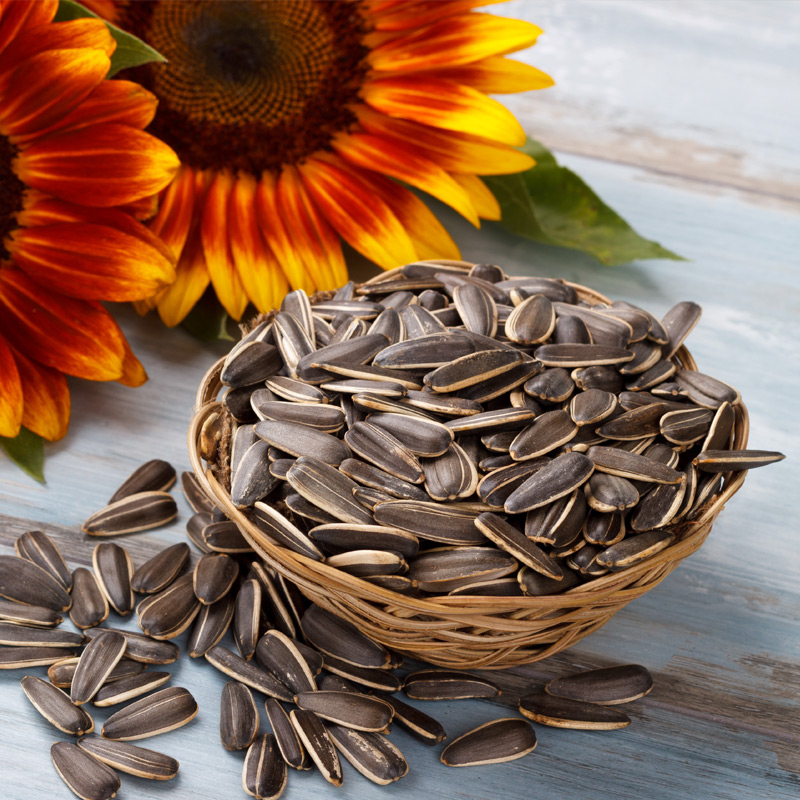
100 gr |
-- |
|
|---|---|---|
| Carbohydrate (gr) | 15.04 |
4928.47 |
| Protein (gr) | 3.59 |
1176.23 |
| Fat (gr) | 12.46 |
4083.43 |
| Fiber (gr) | 1.36 |
445.97 |
| Cholesterol (mg) | 14.64 |
4795.8 |
| Sodium (mg) | 325.27 |
106557.75 |
| Potassium (mg) | 392.16 |
128471.4 |
| Calcium (mg) | 78.15 |
25603.27 |
| Vitamin A (mg) | 46.04 |
15084.01 |
| Vitamin C (mg) | 6.16 |
2019.31 |
| Iron | 0.62 |
203.1 |
Sunflower seeds are a beloved snack enjoyed by almost everyone. They are a highly nutritious food source, extracted from sunflower plants and stored for consumption. The core of these seeds is packed with vitamins, minerals, and a significant amount of protein, making them a valuable addition to a healthy diet.
However, it’s important to consume sunflower seeds in moderation. Although they provide numerous health benefits, excessive and uncontrolled intake can lead to certain health issues. Overconsumption may cause skin problems like oily skin and acne due to their fat content. Moreover, sunflower seeds often contain high levels of salt, which is particularly concerning for individuals with high blood pressure. Therefore, balanced consumption is essential for maintaining optimal health, especially for those managing hypertension.
Sunflower seed calories are 582 calories per 100 grams.
Sunflower seeds are a nutritious snack that can be a valuable part of a balanced diet when consumed in moderation. They are packed with protein, healthy fats, vitamins, and minerals. However, due to their high-calorie content and the potential risks associated with overconsumption, it’s important to enjoy them mindfully. Whether you’re snacking on them at home or adding them to dishes, sunflower seeds offer numerous health benefits as long as they are consumed responsibly.